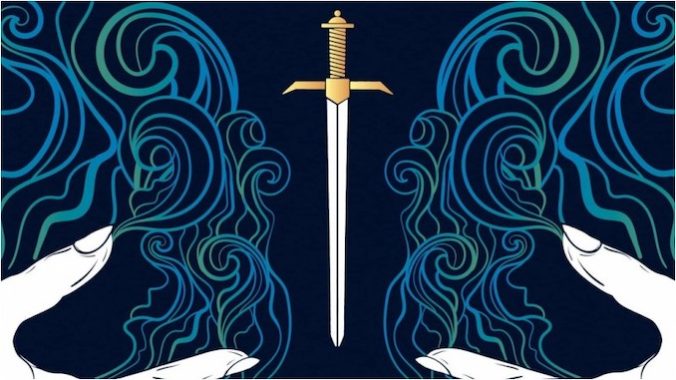Morgan Is My Name Is a Furious, Necessary Arthurian Origin Story

The women of Arthurian legend have it rough. Granted, unlike some other famous stories from myth and folklore, at least there are multiple women with key roles in the story of King Arthur and his glorious realm of Camelot. But that’s a small mercy when you consider how poorly most of them are treated and how few are granted any real agency or depth of their own. Arthur’s mother Ygraine is deceived and raped in the name of providing Britain with the perfect king. His wife Guinevere is primarily remembered for being a shameful adultress rather than a kind-hearted queen. Poor Elaine of Astolat is perhaps the closest thing the story has to a traditional heroine, and she dies of a broken heart (an event that is solely used to serve Lancelot’s story.) And, depending on who you read, there are anywhere from two to five evil witches and sorceresses, who all bear Arthur or some other man in the story evil intent.
This is a big reason why Sophie Keetch’s Morgan Is My Name feels like such a breath of fresh air. The latest entry in the popular publishing subgenre that delights in reexamining and recontextualizing the lives of the most villainous women of myth and folklore, but one of the few that’s turning its feminist lens on the “good” legend of King Arthur, it offers a new perspective on one of the story’s most problematic and misunderstood female characters: Morgan le Fay.
The Morgan of legend is….hard to get a handle on. Most of the stories can’t even agree on what she is, let alone what her motivations are, and her character runs the moral gauntlet from magical protector to dark antagonist, all depending on which version of events you read. A healer, a tempter, a witch, and an enemy by turns, in some stories she is the woman who shepherds the fallen Arthur to the magical island of Avalon to await the day he’ll return in England’s hour of great need. In others, she’s indirectly responsible for his death.
Keetch, thankfully, harbors no such confusion and understands from her novel’s first pages exactly who and what Morgan is: Fierce, headstrong, stubborn, and determined to control her own story. The anger that seems to simmer beneath her skin at all times is perhaps the result of being born into a world that refuses to acknowledge her exceptional nature simply because she wasn’t born into the body of a man, and her determination to be something more than she’s been told she’s allowed—more learned, more capable, more recognized—is both dramatic and deeply relatable.
-

-

-

-

-

-

-

-

-

-

-

-

-

-

-

-

-

-

-

-

-

-

-

-

-

-

-

-

-

-

-

-

-

-

-

-

-

-

-

-








































